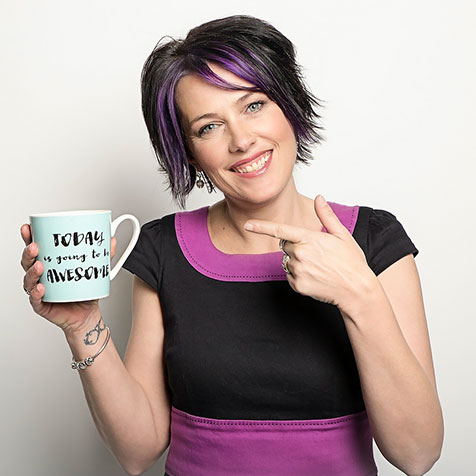Loading component...
At a glance
As businesses compete to employ the best candidates, reduce turnover and increase productivity, there is little room for error. A bad hire can cost a company up to two-and-a-half times the salary of the employee, according to recruitment consultants Chandler Macleod.
No wonder then that personality assessments or psychological profiling have become part of the corporate world’s toolbox.
Their detractors say that personality tests are not an exact science, and that they haven’t entirely shaken off their bogus status in the minds of some people. Only last year, The New York Times ran an article with the headline “Personality Tests are the Astrology of the Office”.
Are the tests worth doing? What do they reveal, and do they improve the accuracy and validity of the recruitment process?
The rise of the personality tests
Personality testing is nothing new. Its roots in the context of work go back to the early part of the 20th century, when they were used to gauge intelligence.
The tests signalled a growing need to quantify and simplify complex ideas using statistics, with the intelligence quotient or IQ test being developed as the result. World War I accelerated the use of personality testing to identify soldiers prone to nervous breakdowns during bombardment, or to identify leadership qualities among recruits.
Myers-Briggs
Originating from Carl Jung’s work on psychological types in the 1920s, the standard format for personality testing is a questionnaire with multiple choice answers. The Myers-Briggs Type Indicator (MBTI) is the go-to when it comes to these kinds of tests, used two million times per year across the globe.
Brian Lawrence, director and chief trailblazer of Life Trails Consulting in New Zealand, has been using the MBTI for more than 20 years in his work with business. He says the corporate sector has largely embraced testing, and the reason is partly due to the fact that “it doesn’t put people in a box”.
"If you know who and what you are dealing with, your people can build empathy to understand the other person's perspective. You don't have to agree with them... but listening and respecting different perspectives is key."
“The instrument is non-judgemental. It doesn’t look at traits; instead it reveals where you get your energy from, how you take in information, how you reach decisions. It’s about understanding how you are hardwired, and learning where you can develop yourself,” Lawrence says.
One example in the MBTI is the intuition versus sensing preference. People with a preference for intuition prefer to focus on future possibilities, whereas sensors concentrate on the present or past.
“When you are looking at the skills and qualities needed in leadership, what is essential is a balance between intuition and sensing. The instrument suggests what skills leaders might need to develop in order to be successful in their leadership roles,” Lawrence says.
The Big Five personality traits
From the mid-1980s, the Big Five personality traits, or the five-factor model (FFM), became the dominant psychological trait theory. It identifies five broad traits: openness to experience, conscientiousness, extraversion, agreeableness and neuroticism.
Measuring the prevalence of these traits in individuals is believed to give a fairly accurate prediction of future work outcomes, and is used by some organisations in recruitment decision-making.
For example, FFM shows that potential leaders are typically less neurotic and more open, well organised (conscientious) and outgoing – although not overly so.
The problem is that researchers have been arguing about the validity of the correlation between these personality traits and job performance ever since the test was introduced.
Clues to personality

Karen Gately, founder of human performance consultancy Corporate Dojo, admits she used to be a personality test sceptic until launching her own business in 2018.
It was then she found that using personality profiling tools in recruitment and development “gave fabulous insights into character and preferences – showing how someone is likely to respond in any given circumstances”.
Nevertheless, Gately says data like this is only one indication of a candidate’s suitability for a role, and “personality tests should be seen as indicative, not predictive. They give us clues – what might be.”
Soft is the new hard
The employees’ softer skills have long been understood to benefit businesses, but since remote working has become more normalised during the pandemic, human resources (HR) professionals agree they are now more in demand than ever.
With no one in the same room, and people’s stress levels fluctuating, effective communication and empathy are important skills for team leaders.
“A lot of people call these soft skills, but they’re not soft at all. They are hard, often the hardest skills to understand and then to master, because you are talking about people, and people are all different,” Lawrence says.
Empathy, flexibility, adaptability, tolerance, insightfulness, independence and a capacity to learn are all desirable personality traits in today’s job candidates, says Lawrence.
Unlike MYOB or Excel, they aren’t skills that can be easily taught.
Exceptional individuals who show these personality traits are recognised as a new kind of leader, much needed, it could be argued, in an increasingly polarised world.
CPA Library resource:
Gendered skills?

“When it comes to world leaders”, says Lawrence, “if you think about the people who have stepped up during the COVID-19 crisis, they are women.
“Jacinda Ardern, prime minister of New Zealand, Angela Merkel, chancellor of Germany and Sanna Marin, prime minister of Finland have all shown a high degree of compassion, empathy and flexibility, but have been decisive at the same time.” These are the kinds of leadership qualities employers should look for, says Lawrence.
Although linked to effective leadership and positive economic outcomes, soft skills are often characterised as “feminine” and not valued equally (or financially rewarded equally) alongside the “masculine” technical and data-driven skills.
In accountancy and financial services, although women make up about half of the workforce, fewer are making it into senior management roles.
This may be one reason why the profession is still perceived as having a soft skills deficit, particularly among its leaders. Gately, who used to work as HR director for the Asia-Pacific region at investment firm The Vanguard Group, recounts how she would see senior colleagues emailing rather than talking to each other, even though they sat close together.
In Gately’s experience, the way to get financial services firms to balance their focus on results with an equal emphasis on people skills is to intellectualise the argument.
“If you can demonstrate the economic power behind compassion and engagement and performance level, companies are more likely to start placing more value on those personality traits.”
As accountancy firms take on greater advisory roles, listening skills, knowing how to reassure clients, how to persuade and negotiate, and how to communicate effectively both written and verbally will differentiate the average from the exceptional, says Gately.
“If you know who and what you are dealing with, your people can build empathy to understand the other person’s perspective. You don’t have to agree with them, or give them a hug, but listening and respecting different perspectives is key,” she says.
The role of big data
Testing for something as unquantifiable as compassion is much harder than assessing technical ability, so how are today’s personality tests evolving?
It is not surprising, perhaps, that it’s the big tech companies where innovation in psychological profiling and personality assessments is taking place.
Take Facebook’s approach as an example. Its strategy is to hire the smartest people it can find and then use an online personality assessment tool to gauge each employee’s top five strengths. Only then does Facebook decide where they would best be deployed in the organisation.
Other companies are more targeted. Data trawled by Xerox about its employees showed that those who demonstrated empathy provided better customer service. Therefore, in 2014, Xerox began to screen for compassion in pre-employment tests, with questions that teased out that specific personality trait.
Using metrics like this to assess 21st century skills has led to a raft of new-style personality tests popping up from both start-up companies and well-established businesses. They range from written, online, video and gamification tests, often using artificial intelligence (AI) to remove bias from the process.
The use of big data is part of a trend towards “optimised hiring”, which builds a personality assessment by correlating responses to questions with candidates’ on-the-job performance.
For many people, however, the jury is still out on whether personality tests are really the route to successful hiring. Gallup-certified Strengths Coach Kathleen Murphy says there is no hard and fast answer.
In an interview with The Economist, Murphy explains: “Most people are not personality experts, so they will need to rely upon either other people’s assessments of someone’s personality, or consider asking the candidate to take a personality test.”
If they choose the latter, Murphy said a personality test is only valuable if the company has decided what kind of personality they are looking for that will fit in with the business.
“Judging someone based on their personality without having criteria about whether it will fit into your organisation is pointless,” Murphy said. “Worse, the data will likely be arbitrary and not actionable.”
Over the past century, personality tests promoted by management consultants and recruitment specialists have mushroomed into a business that today is worth a staggering US$2 billion (A$2.9 billion) in the US alone.
While the value of personality testing to business remains contested, its value in monetary terms certainly appears assured.

